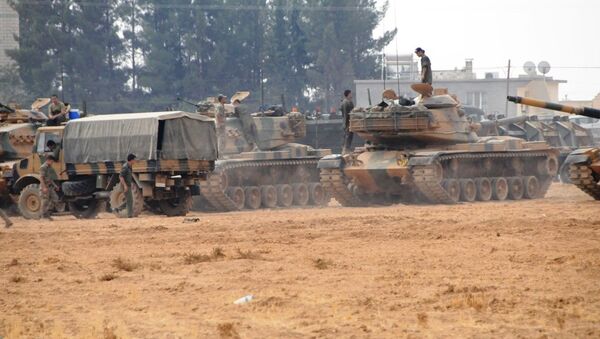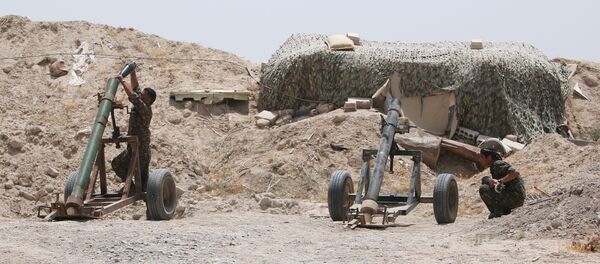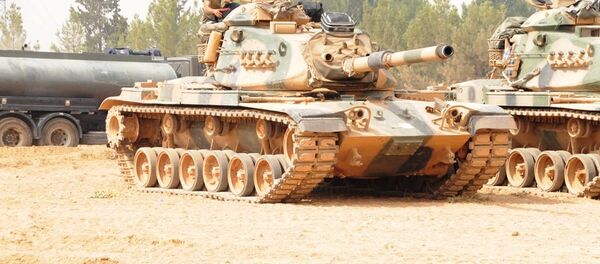"This move from the Turkish part was not possible before the failed coup on President Recep Tayyip Erdogan," Almassian tells Loud & Clear host Brian Becker.
The coup attempt forced the Turkish government to reconsider its regional strategies. A new priority for the Erdogan Administration is preventing the creation of a separate state in northern Syria. But Ankara seems to still be acting at odds with the legitimate government of President Bashar al-Assad.
"Erdogan today, by pushing his forces into Jarablus, backed by the so-called Free Syrian Army, which is also considered a terrorist organization by the Syrian government, tried to replace [Daesh] with different militants," Almassian says.
For Ebrahim, the retaking of Jarablus has less to do with the coup, and simply reflects plans made with the United States.
"We have to also bear in mind that the American administration blamed Turkey before, blamed Turkish President Erdogan, for failing to take action in Syria, for failing to commit to the Syrian cause…" he says.
"The United States has always called for more regional involvement in the fight against the Syrian government and the government President Bashar al-Assad."
Alliances are also shifting between the Syrian government and Kurdish forces, who previously had an unspoken understanding that they shared a common enemy in Daesh. In the wake of a YPG attack on the Syrian Army, however, the government was forced to respond.
"In my opinion, it was an American step to escalate the situation in the eastern part of Syria in order to reshuffle the realities on the ground there," Almassian says. "It’s in the national security interests of the Syrians not to fight the YPG or any other groups at this moment, because the priority is ISIS, al-Nusra Front, and other terrorist organizations."
In the long-term, the YPG’s desire for an independent state could be a problem for the Syrian government. While Damascus and Ankara both have an interest in preventing this, Turkey’s unpredictable behavior could be a problem for Syria.
"We have to bear in mind, the move that the Turks carried out today was not [done] in favor of the Syrian government," Ebrahim says. "What the Turks are doing is invading Syrian territories, taking Jarablus down…
"I don’t think the Syrian government is ecstatic to see Turkish forces inside Syrian territories, and I think the Turks will continue to support the rebels, I don’t think they will turn and change their positions. I think they’re still betting on toppling the government of Bashar al-Assad, they’re still betting on dividing Syria, they’re still betting on trying to create a situation where they can impose their control over the city of Aleppo."
While alliances continue to shift, one constant factor is the presence of the United States.
"The Americans only try to focus on [Daesh] and saying that we are fighting terrorism, but on the other hand they support other groups that are also terrorist organizations, but because these people fight [Daesh] they are not terrorists," Almassian says.
"So it’s a ‘good terrorist, bad terrorist’ situation in Syria for the Americans."





